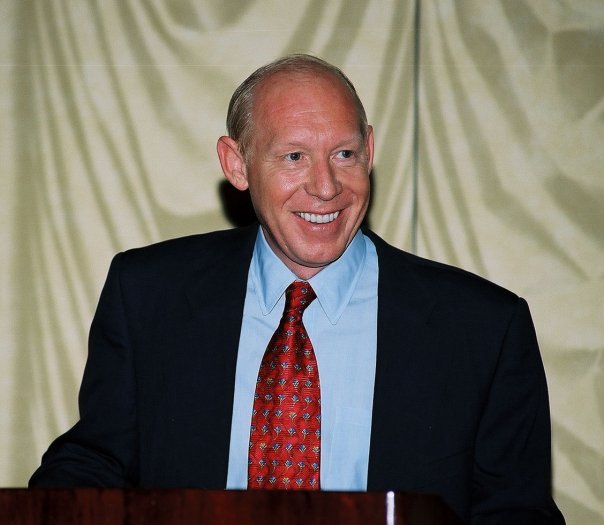Alas.
In passing two ordinances designed to regulate air pollution, the city of Houston overstepped its authority and illegally subverted state law, the Texas Supreme Court ruled Friday. The ruling is a victory for a coalition of industrial facilities whose emissions were subject to inspection and possible prosecution by the city.
The case pit the BCCA Appeal Group, a coalition of companies including ExxonMobil, the Dow Chemical Company, and ConocoPhillips, against the city of Houston, which sought to penalize companies in criminal court when those companies violated state emission guidelines.
Attorneys for the city of Houston argued that the city was simply trying to enforce the standards set out by the Texas Commission on Environmental Quality, a state agency, by putting in place a parallel enforcement mechanism that would impose fines on the companies even if the Commission chose not to act.
“If the TCEQ is letting something go, and not enforcing its own standards, there’s something wrong with that,” attorney Robert Higgason told the justices in September.
In an 8–1 ruling Friday, the justices made it clear that they disagreed – saying that if the Commission chose not to enforce any given law, that did not clear the way for Houston authorities to do so.
“By authorizing criminal prosecution even when the TCEQ determines an administrative or civil remedy—or even no penalty at all—to be the appropriate remedy, the City effectively moots the TCEQ’s discretion and the TCEQ’s authority to select an enforcement mechanism,” Justice Paul Green wrote. “This is impermissible.”
See here and here for the origin story, and here and here for the most recent updates. The Chron story adds more.
City Attorney Donna Edmundson issued a statement saying the court’s decision “will not dampen the city’s efforts” to assist the Texas Commission on Environmental Quality with the enforcement of environmental laws. The statement said the city will employ “other legal mechanisms” allowed under state law to monitor and take action against polluters. A spokeswoman said the city hadn’t decided whether to appeal.
Adrian Shelley, executive director of the advocacy group Air Alliance Houston, said the decision was “not the least bit surprising” but dismaying nonetheless.
“It’s pretty in-keeping with both previous judicial decisions and the direction in which our state government is moving,” he said. He cited the state Legislature’s passage of a bill last session that caps the amount local governments can collect through environmental lawsuits, Gov. Greg Abbott’s filing of a brief in support of the industry advocates in this case, and a prior legal case that made its way to the Texas Supreme Court.
“There will be more polluters who pollute with impunity,” Shelley said. “There will be a little poorer public health in the city as a result.”
Houston battled smoggy skies for decades and has failed to comply with federal ozone standards. The 10-county area includes the largest petrochemical complex in the country, hundreds of chemical plants and a bustling port.
Under the ordinances, the city collects registration fees from companies in order to investigate potential violations of air pollution laws.
City officials have defended the ordinances since their passage in 2007, arguing they helped fill an enforcement gap created by understaffing at TCEQ, the state agency responsible for monitoring and punishing polluters.
The city said legal mechanisms it could use against polluters include requesting that TCEQ investigate suspected polluters, seeking injunctive relief and penalties in civil court against suspected violators and notifying TCEQ of violations deemed to be criminal in nature.
Former Mayor Bill White pushed for the ordinances after growing frustrated with TCEQ. He and City Council members voted to amend a 1992 ordinance and start requiring businesses to pay registration fees based on their size and emissions. The fees range from $130 for a dry cleaning plant with fewer than six employees to $3,200 for plants emitting more than 10 tons annually of airborne contaminants.
The ordinances also authorized city health officers to seek civil, administrative and criminal sanctions for violations that can be prosecuted in municipal court, with fines of up to $2,000 per day for repeat violators.
The ordinance was based on the premise that these facilities are outside Houston’s boundaries, but their emissions directly affect the city and its residents, not to mention Houston’s non-compliance with EPA regulations. The Supreme Court wrote that allowing such ordinances might lead to uneven enforcement around the state. I can see the logic of that, but as is so often the case with the TCEQ, if they bothered to enforce the law in the first place, the city wouldn’t have passed that ordinance. It’s the same impetus that drove Denton to ban fracking, and as was the case there, it’s the same impulse to squash inconvenient expressions of local control that led to this result. How long can you hold your breath, Houston? The Press and the Observer have more.

